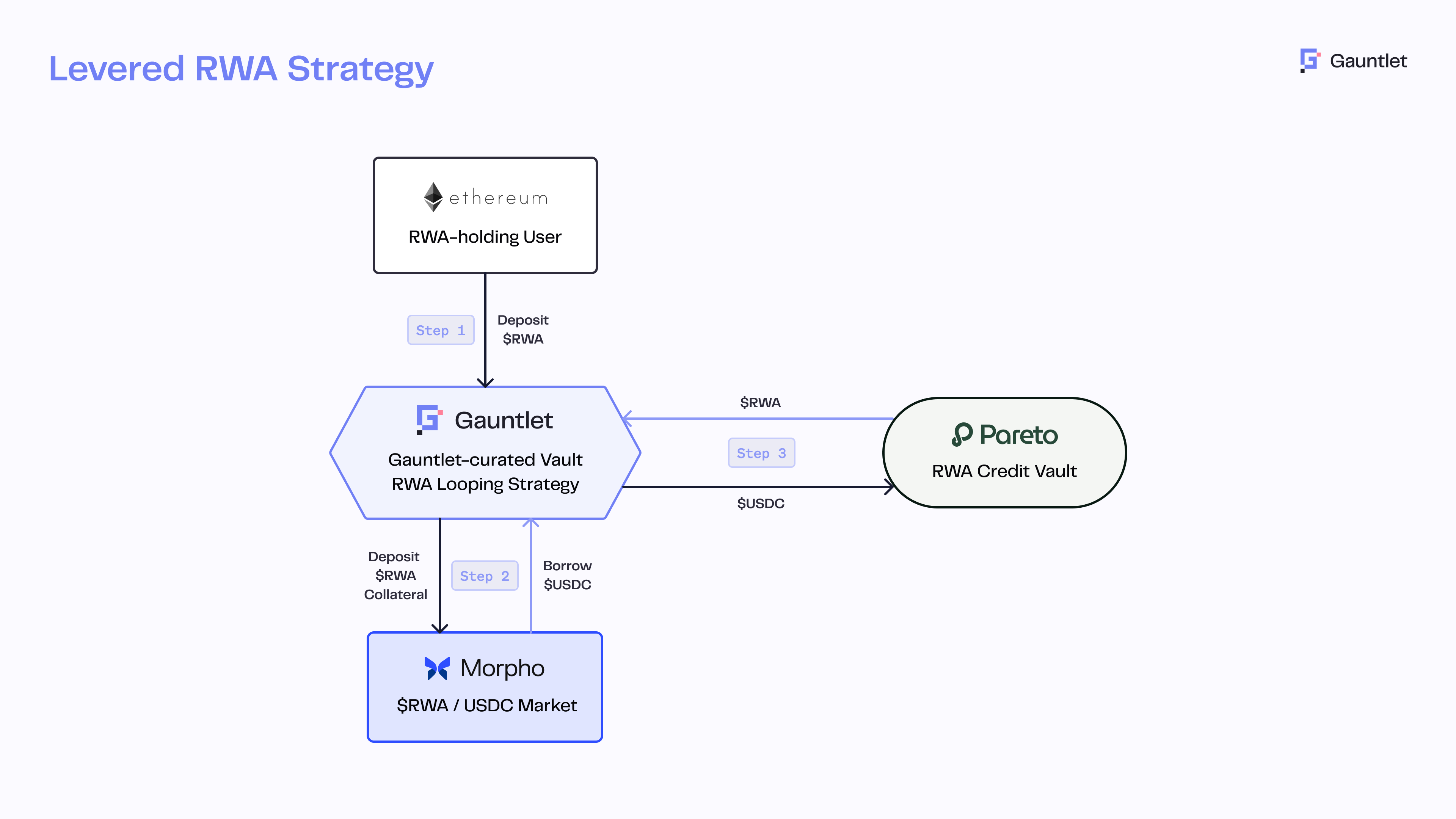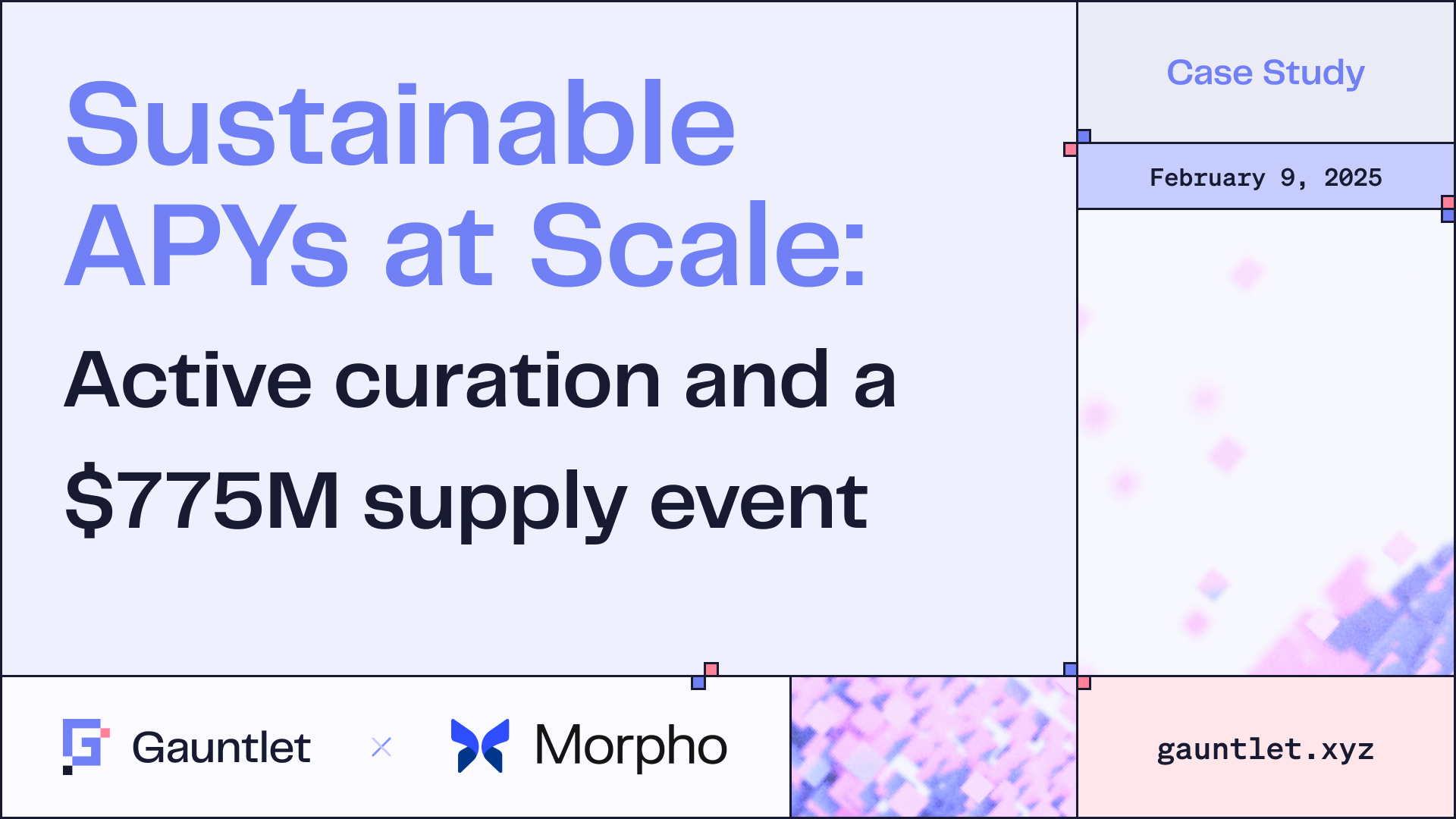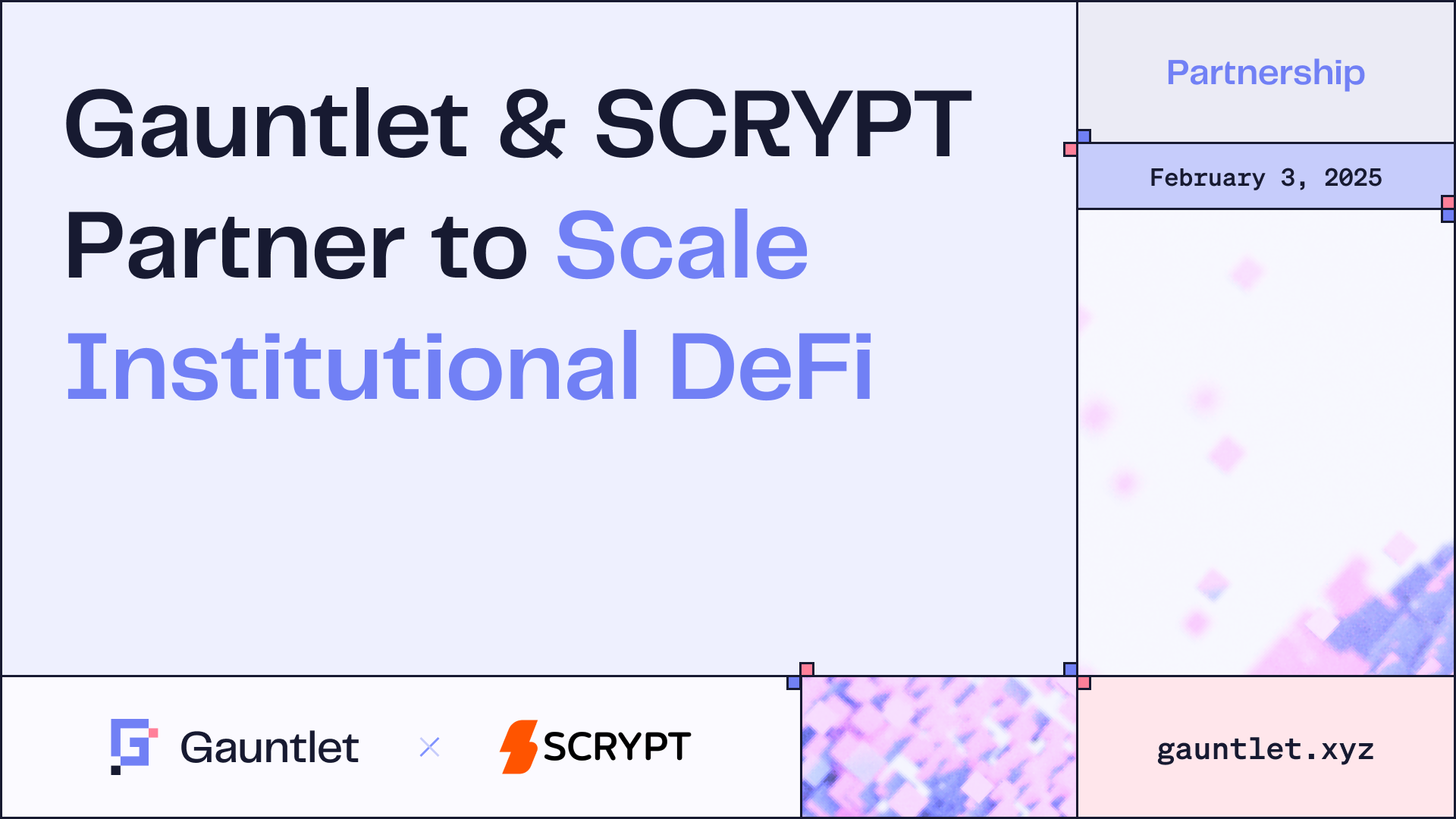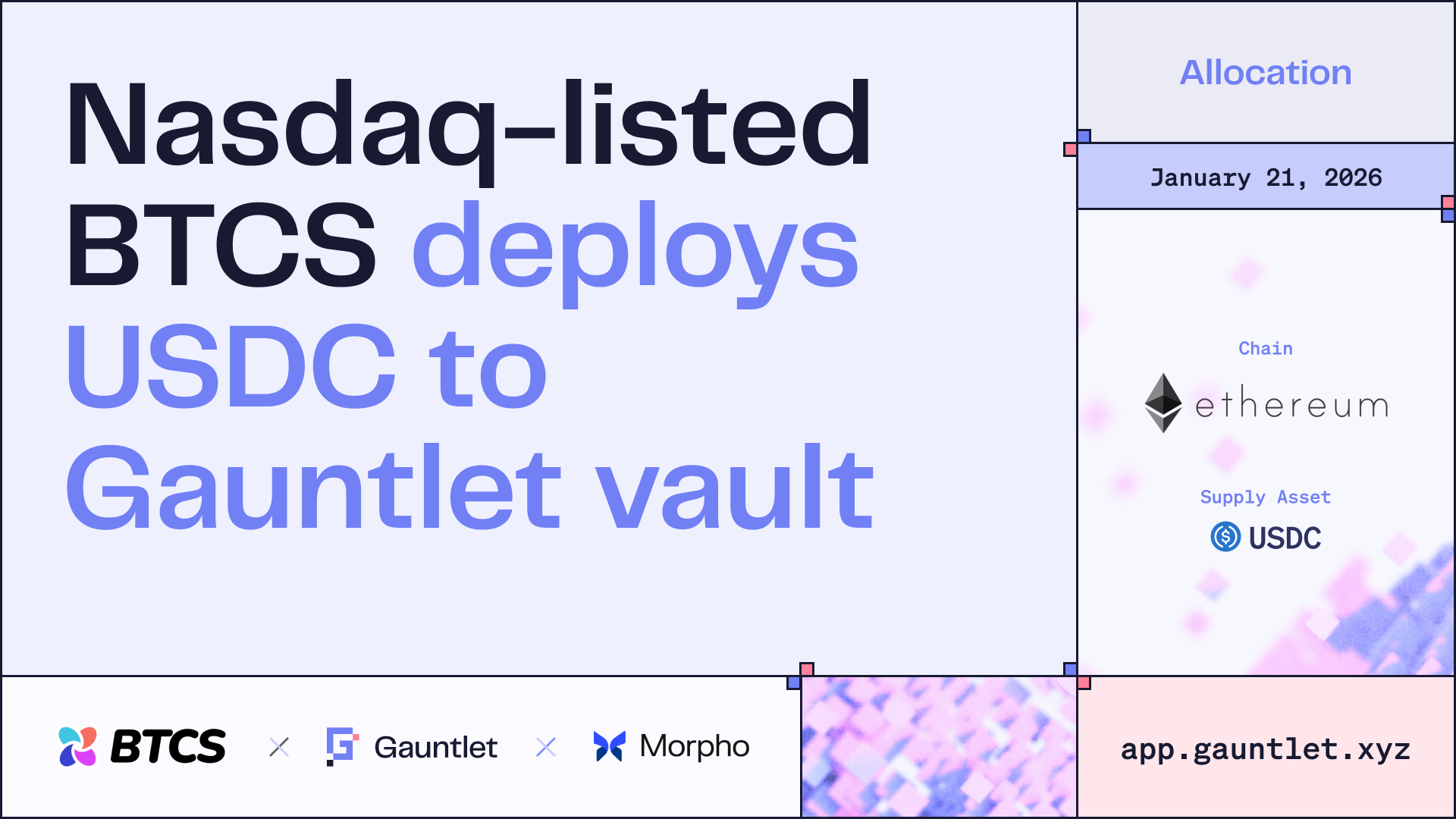Today, we are announcing a new levered RWA strategy for FalconX Credit Vault (CV) tokens in partnership with Pareto and powered by Morpho. The strategy uses FalconX CV tokens as collateral to borrow USDC and purchase more CV tokens within strict risk parameters set by Gauntlet’s optimization engine. This collaboration further bridges Traditional Finance and Decentralized Finance and showcases how onchain RWAs can operate as composable building blocks for institutional portfolios.
What are Pareto Credit Vaults
Pareto Credit Vaults are onchain structured credit facilities that bring institutional lending into DeFi. They enable protocol-to-business lending, where liquidity providers fund loans to institutional borrowers like FalconX under transparent, fixed terms.
The Levered FalconX RWA Strategy
Levered strategies on permissionless rails let capital allocators pursue enhanced yields without TradFi’s operational constraints. When paired with Gauntlet’s optimization engine and Morpho’s permissionless infrastructure, FalconX CV tokens benefit from increased composability and capital efficiency. The result is a programmable, model-driven strategy to scale exposure within predefined risk limits.

How the strategy works
- FalconX CV tokens are supplied to a Gauntlet curated vault.
- The vault deposits CV tokens as collateral on Morpho and borrows USDC against it.
- The borrowed USDC is used to buy additional CV tokens, which are again deposited as collateral on Morpho.
- The loop remains active within the risk levels established by Gauntlet’s optimization engine, which monitors supply & borrow APYs, sets appropriate LLTVs, optimizes the leverage factors, and continually assesses market health.
This builds on the structure we used for our ACRED levered strategy.
Learn more
To learn more about the vault mechanics, calibration options, and operational workflows, reach out to Rahul Goyal, Gauntlet’s Head of Institutional Partnerships: rahul@gauntlet.xyz
Blog
View the full presentation
Read the full paper









